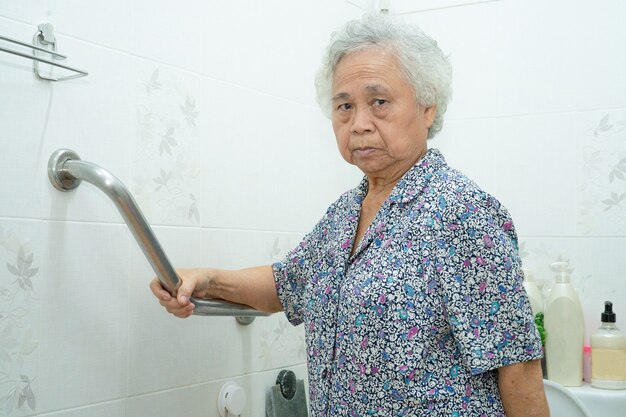Understanding Male Incontinence: Causes and Solutions
Imagine planning a fun day out with friends or an important business meeting, only to be constantly worried about sudden bladder issues. Incontinence, a health consideration many men face, can significantly impact quality of life, but it's often not discussed openly. Let’s delve into what causes incontinence in men, how it's classified, and what steps can be taken to manage it effectively.
What Exactly is Male Incontinence?
Male incontinence refers to the involuntary leakage of urine. It's a condition that varies in severity, from occasional dribbling to losing substantial amounts of urine. Understanding its types is crucial for tackling the problem head-on.
Types of Male Incontinence
Stress Incontinence: This occurs when physical activities, like coughing, sneezing, or heavy lifting, put pressure on the bladder, causing leaks.
Urge Incontinence: Also known as overactive bladder, this involves a sudden, intense urge to urinate, followed by involuntary urine loss.
Overflow Incontinence: This happens when the bladder does not empty completely, leading to overflow, which causes leakage.
Functional Incontinence: Sometimes, not directly related to urinary function, but due to other physical or mental impairments.
Mixed Incontinence: A combination of stress and urge incontinence is the most common form in older men.
Primary Causes of Incontinence in Men
Understanding the causes opens doors to specific interventions. Here's a closer look at what might be influencing your or a loved one’s symptoms:
Prostate Issues
The prostate plays a central role in male urinary function. Conditions like benign prostatic hyperplasia (BPH) or prostate cancer treatments can lead to incontinence.
Benign Prostatic Hyperplasia (BPH): An enlarged prostate can compress the urethra, limiting urine flow and leading to symptoms of incontinence.
Prostatectomy: Surgery for prostate cancer or BPH can affect the muscles that control urination, leading to stress or urge incontinence.
Medical Conditions
Several health conditions contribute to urinary incontinence.
Diabetes: High blood sugar can damage nerves controlling the bladder.
Neurological Disorders: Conditions like Parkinson's disease, stroke, or multiple sclerosis can disrupt nerve signals between the brain and bladder.
Obesity: Excess weight increases abdominal pressure on the bladder, exacerbating urinary issues.
Lifestyle Factors
Certain habits can exacerbate or trigger incontinence.
Dietary Choices: Consumption of alcohol, caffeine, and spicy foods can irritate the bladder.
Medications: Diuretics and certain antihypertensive drugs may have side effects of increased urine production.
Smoking: Chronic cough from smoking strains pelvic muscles, worsening stress incontinence.
Age-related Changes
As men age, changes in the bladder, urethra, and supporting muscles can lead to incontinence.
Solutions and Management Strategies
Though incontinence can be challenging, several strategies and interventions can help manage symptoms effectively.
Behavioral Techniques
Bladder Training: Gradually extending the time between trips to the bathroom can increase control over sudden urges.
Scheduled Toilet Trips: Going to the restroom on a set schedule can prevent accidental leakage.
Pelvic Floor Exercises (Kegels): Strengthening the pelvic floor muscles helps support bladder control.
Lifestyle Adjustments
Dietary Modifications: Reducing irritants like caffeine and alcohol may help control symptoms.
Weight Loss: Shedding excess pounds can alleviate pressure on the bladder and pelvic muscles.
Smoking Cessation: Quitting smoking can reduce coughing and help regain control over incontinence.
Medical and Surgical Interventions
Medications: Drugs are available to relax the bladder, reduce urgency, and improve nerve signaling.
Botox: Injections into bladder muscles can alleviate symptoms of overactive bladder by reducing muscle contractions.
Surgical Options: For severe cases, procedures like sling surgery or artificial urinary sphincters can provide relief.
Seeking Professional Help
If incontinence persists, it may be time to seek a healthcare provider's insight. Early diagnosis and treatment can make a significant difference. Urologists or specialists in male pelvic health are often best equipped to provide guidance tailored to individual needs.
Empowering Men with Knowledge and Resources
Incontinence is more common than many realize, affecting millions of men globally. While it can be distressing, feeling empowered with the right information can pave the way for effective management. Start by understanding the condition, recognizing the symptoms, and being proactive in seeking help.
Remember, incontinence is not solely an inevitable part of aging. With the right strategies and support, many men regain control and live fulfilling lives without the constant distraction of bladder issues. Whether through lifestyle adjustments, behavioral techniques, or medical interventions, every proactive step taken can lead to improvement.
Summary: Managing Male Incontinence
- Identify the Type: Understanding stress, urge, overflow, or mixed incontinence 🧠
- Recognize Causes: Prostate issues, medical conditions, lifestyle factors, aging 🕵️♂️
- Behavioral Strategies: Bladder training, pelvic floor exercises, scheduled trips 🌟
- Lifestyle Adjustments: Modify diet, lose weight, stop smoking 🥗
- Seek Treatment: Medications, surgery options, professional guidance 🏥
- Stay Informed: Knowledge is power in managing symptoms and improving life ⚡
Understanding, awareness, and action are your allies in managing incontinence — take control into your hands. 🚀

Related Articles
- Are Incontinence Supplies Tax Deductible
- Can a Bladder Infection Cause Urinary Incontinence
- Can a Kidney Stone Cause Incontinence
- Can a Urinary Tract Infection Cause Incontinence
- Can a Uti Cause Incontinence
- Can Constipation Cause Incontinence
- Can Dairy Cause Incontinence
- Can Hemorrhoids Cause Bowel Incontinence
- Can Hemorrhoids Cause Incontinence
- Can Incontinence Be Cured
